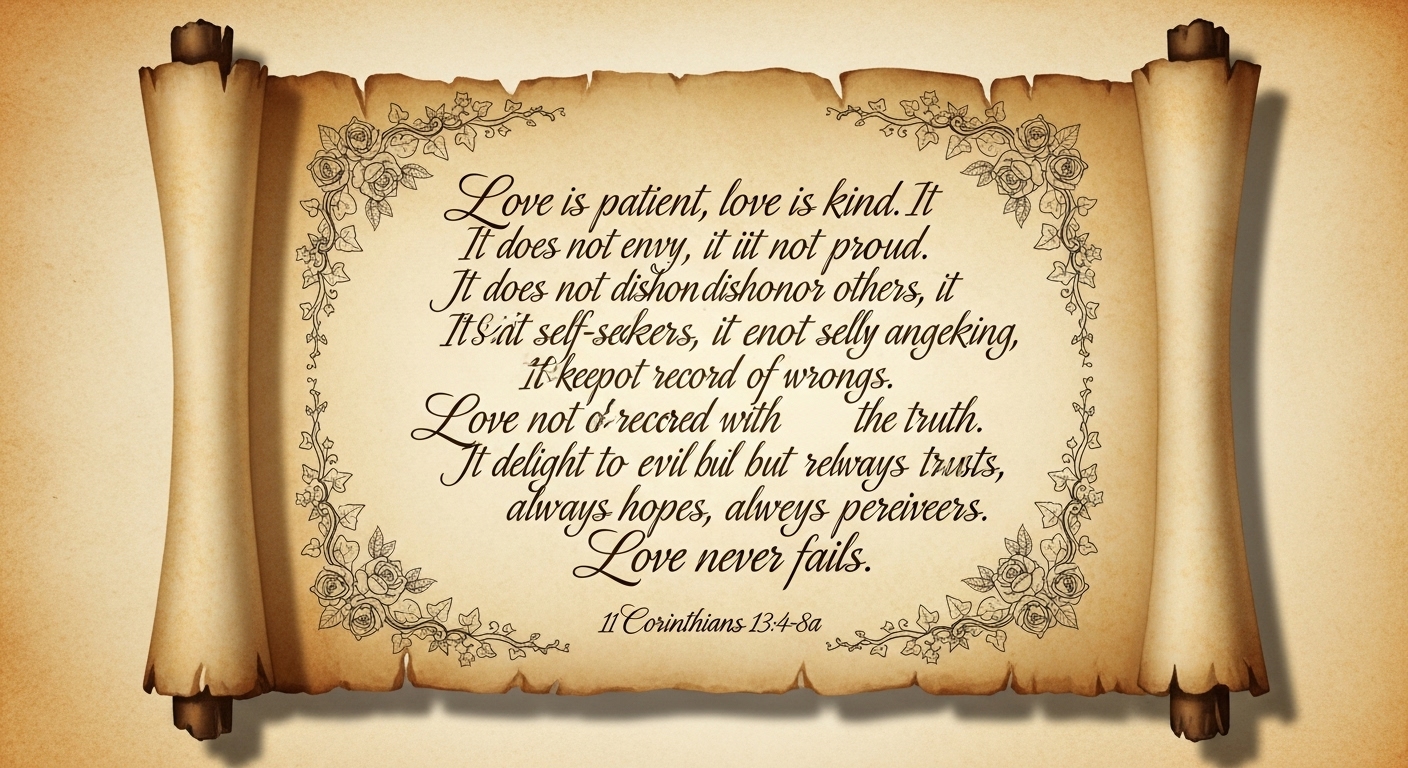Courtship Vs. Dating: Understanding God’s Design For Relationships
You’ve probably heard the debate: Christian courtship vs dating. Maybe you grew up with one model, or maybe you’re trying to figure out what walking with God looks like in your relationships today. This article isn’t about condemning people who date or glorifying a single approach. It’s about helping you understand biblical principles, see how cultural dating patterns compare to those principles, and make choices that honor God, protect your heart, and move you toward healthy, lifelong commitment if that’s your goal.
You’ll find biblical foundations (with links to each passage), practical wisdom for singles, parents, and mentors, and real-life guidance on how to pursue relationships in a way that aligns with God’s design. Throughout, I’ll use the term Christian courtship vs dating so you can see how the two compare and where the Bible speaks into both.
Why this matters to you
Relationships shape you. The person you choose to spend life with will influence your faith, character, family, and future. Knowing the difference between Christian courtship vs dating helps you move with intention rather than drifting into patterns that may hurt you or others. You don’t need a perfect rulebook, but you do need principles that protect your heart, honor God, and build toward holiness and commitment.
What people usually mean by “dating”
When most people say “dating,” they mean going out with someone to enjoy time together while assessing chemistry and compatibility. Dating can range from casual, no-strings-attached encounters to serious, exclusive relationships. Culturally, dating often emphasizes emotional connection, mutual enjoyment, and personal fulfillment. It can be exploratory, experimental, and sometimes ambiguous about future intent.
In the modern dating scene, dating frequently prioritizes self-discovery, romantic attraction, and short-term satisfaction. While not inherently sinful, this cultural model can leave you vulnerable to confusing signals, mixed expectations, and patterns that downplay community accountability or long-term commitment. Understanding what “dating” usually looks like helps you compare it with the Christian courtship approach.
What Christian courtship is (and what it isn’t)
Christian courtship is an intentional, covenant-minded approach to forming romantic relationships with the goal of marriage. It’s not merely about getting to know someone for fun. Courtship intentionally involves family and spiritual community, sets clear boundaries for physical intimacy, and pursues compatibility in faith, character, and life calling before considering engagement.
Courtship isn’t a legalistic ritual. It’s not a guarantee of marriage, and it’s not a rigid blueprint that erases discernment and personality. It’s a framework for you to pursue another person responsibly, biblically, and with accountability. If you value clarity, spiritual maturity, and a process that centers God over feelings, courtship might resonate with you.
Key differences between Christian courtship vs dating
When you compare Christian courtship vs dating, several differences stand out: purpose, intentionality, accountability, boundaries, and community involvement. Dating often emphasizes self-fulfillment and emotional chemistry; courtship emphasizes covenant, discernment, and marriage-centered intention. Courtship invites you and the other person (and your communities) into a process of discernment rather than leaving things ambiguous.
These differences matter because how a relationship begins and develops impacts its long-term trajectory. When purpose and accountability are clear, you’re less likely to drift into sin, more likely to ask the hard questions early, and better equipped to align your relationship with God’s design.
Purpose: Enjoyment vs. covenant-minded commitment
Dating often centers on enjoyment and personal compatibility; courtship centers on covenant and marriage. If you’re weighing Christian courtship vs dating, ask yourself whether your current interactions are preparing you for lifelong faithfulness or simply meeting present desires.
When the goal is marriage, conversations about spiritual life, family values, finances, and calling become central early on. That doesn’t mean all early dates are awkward, but it does mean you intentionally evaluate whether the relationship is moving toward covenant rather than just toward comfort.
Intentionality and clarity
Courtship is intentional; dating can be ambiguous. Intentionality means you verbalize where things are heading. You make decisions about exclusivity, timelines, and involvement of mentors or family. Ambiguity in dating often leads to hurt, unclear expectations, and missed red flags. If you prefer clarity and accountability, Christian courtship vs dating will likely tip you toward courtship.
Accountability and community involvement
A hallmark of courtship is involving trusted mentors, parents, or spiritual leaders in the relationship. Dating, especially casual dating, tends to occur privately between two people. Community involvement helps you see blind spots, receive counsel, and protect against isolation or secrecy.
The Bible repeatedly looks at relationships not just as private matters but as things that affect families and communities. Bringing others into the process protects both partners and honors the relational nature of what marriage effects.
Boundaries and guarding purity
Courtship emphasizes clear boundaries—emotional, physical, and spiritual—to protect purity. While many who date do practice boundaries, dating culture can normalize behaviors that blur lines: sexual intimacy outside of marriage, emotional dependency, or living together without marriage. If guarding sexual, emotional, and spiritual purity matters to you, Christian courtship vs dating favors the courtship model.

Biblical foundations for relationships
If you want your relationships to honor God, you need Scripture as your guide. Here are key passages that inform how you think about romantic relationships and commitment.
- Creation and marriage purpose: Genesis 2:18-24. This passage describes God creating a helper and the bond of leaving, cleaving, and becoming one flesh—foundational imagery for marriage as covenantal and relational.
- Seeking a spouse as a blessing: Proverbs 18:22. The wisdom literature treats a spouse as a blessing from the Lord, reinforcing the value of marriage pursued under God’s guidance.
- The beauty and delight of love: Song of Solomon 2:7. This poetic book affirms romantic love, passion, and pursuit within the covenant setting.
- The call to purity and holiness: 1 Thessalonians 4:3-8. Paul urges believers to live sanctified lives, pursuing sexual purity out of respect for God.
- Unity in Christ and suitability: 2 Corinthians 6:14. This verse warns believers about being yoked with unbelievers, pushing you to consider spiritual compatibility.
- Commitment and sacrificial love: Ephesians 5:22-33. Paul models marriage as reflecting Christ’s sacrificial love for the church—marriage is therefore a sacred, mutual, covenantal relationship.
- Enduring love as the measure: 1 Corinthians 13:4-7. This chapter sets the bar for what love should look like—patient, kind, truthful, and persevering.
- Honoring marriage: Hebrews 13:4. Marriage is to be honored and kept pure, again highlighting God’s care for covenant faithfulness.
- Singleness and contentment: 1 Corinthians 7:7-9. Paul recognizes singleness as a gift and offers perspective for those waiting or choosing singleness.
Together, these Scriptures sketch a picture: God values covenantal commitment, sexual purity, spiritual compatibility, sacrificial love, and community involvement. They don’t prescribe a specific cultural process, but they do shape the values you apply when choosing a model—be it courtship, dating, or something in between.
Practical principles of Christian courtship vs dating you can apply
Whether you choose courtship, dating, or a hybrid, these practical principles will help you keep faith and wisdom at the center.
Prioritize spiritual compatibility
Look first at whether you’re both committed to Christ. Spiritual alignment doesn’t mean identical ministry roles, but it does mean shared faith, church involvement, and compatible theological convictions. 2 Corinthians 6:14 is a helpful caution. When spiritual life is central, other issues are easier to negotiate and align.
Make purposes explicit
Don’t drift into exclusivity without discussing where you’re headed. If the relationship may lead to marriage, say so. If you’re exploring without expectations, say that too. Clear purposes help you and the other person avoid assumptions and emotional harm.
Invite wise counsel
You don’t have to have every conversation in public, but you should bring mentors and family into significant decisions. Accountability provides perspective, warnings, and prayerful support. Proverbs and the New Testament consistently recommend seeking counsel (see, for example, the wisdom theme throughout Proverbs).
Set and guard boundaries
Decide together on physical and emotional boundaries. This protects against sexual sin and helps you develop trust, patience, and emotional maturity. Boundary decisions might include not living together before marriage, curbing private late-night calls, or setting limits on intimacy that lead to temptation.
Ask the hard questions early
Talk about faith, finances, family expectations, children, career priorities, and conflict resolution before emotional momentum makes those conversations awkward or deferred. Honest early conversations prevent painful surprises later.
Cultivate community-supported decision-making
Courtship intentionally involves community, but you can bring community into dating, too. Invite couples you respect to go on double dates, ask mentors to pray with you, and be transparent about what you’re learning.
Love sacrificially
Whether you date or court, your love should conform to 1 Corinthians 13 and Ephesians 5: sacrificial, patient, forgiving, and committed to the other’s flourishing. That kind of love isn’t dependent on perfect chemistry; it’s a choice to pursue the good of the other.
How to pursue a relationship the biblical way (step-by-step)
If you want practical steps that align with biblical wisdom, here’s a process you can follow, whether you lean toward Christian courtship vs dating.
- Pray and seek God’s heart. Start by asking God for wisdom, clarity, and the courage to trust Him in your relational hopes. Prayer keeps you rooted in God rather than simply following emotion.
- Evaluate character over chemistry. Notice how they treat others, how they handle conflict, and whether they pursue spiritual growth. Character endures; chemistry can be fleeting.
- Involve mentors. Invite input from pastors, godly friends, or family to help you see blind spots and to keep your decisions accountable.
- Have explicit conversations about your relationship’s direction. Are you exploring? Exclusive? Seeking marriage? Put words to it so expectations match.
- Establish mutual boundaries and safeguards. Decide together what physical intimacy looks like (or doesn’t) and how you’ll protect your hearts.
- Observe how the relationship functions under pressure. How does the person respond in conflict, failure, or stress? Those moments reveal true character and maturity.
- Evaluate long-term compatibility. Discuss values, children, faith practices, finances, and vocational goals. If your life goals clash, resolve them before commitment.
- Move toward engagement only when you and your community are confident in mutual calling and readiness. Engagement is not a sure outcome of dating; it’s the fruit of deliberate discernment.
This sequence isn’t a checklist to manipulate outcomes; it’s a rhythm of wisdom and discernment that helps you steward the relationship faithfully.

Common objections and honest answers
People raise real concerns about Christian courtship vs dating. Let’s be candid about some of them.
“Courtship is too legalistic and restrictive.”
Courtship can become legalistic if rules replace a relationship with God. But the heart of courtship is not a list of dos and don’ts—it’s intentionality and accountability. The goal is holy flourishing, not checklist performance. When courtship is motivated by grace and gospel-centered love, it protects rather than enslaves.
“Dating prepares you for marriage because you learn by trying.”
You can learn about relationships through dating, but learning by trial-and-error often comes with emotional costs and compromised values. Intentional dating or courtship allows you to practice relational skills and gain wisdom without constantly repairing avoidable wounds.
“No model guarantees a perfect outcome.”
True. Neither courtship nor dating ensures a marriage that lasts. Both involve risk. The point is not to guarantee success but to steward your heart and to position the relationship under God’s wisdom, community accountability, and biblical values to increase the chances of a healthy outcome.
“I don’t want to lose freedom or autonomy.”
Pursuing wisdom in relationships means sometimes surrendering autonomy for the sake of another’s flourishing. If you’re entering into a covenant relationship, freedom rightly expressed includes mutual submission, sacrificial care, and prioritizing the relationship above personal convenience—because marriage itself is not about personal freedom as much as covenantal faithfulness.
Red flags to watch for in relationships
Whether you’re dating or courting, certain behaviors signal you should pause and reevaluate. If you notice these, bring them to a mentor and pray seriously.
- Lack of spiritual interest or consistent avoidance of church and Scripture.
- Habitual deception, even in small matters.
- Disrespect toward family, friends, or those in authority.
- Controlling behavior or pressure to compromise boundaries.
- Refusal to involve the community or to be accountable.
- Unwillingness to discuss marriage, values, or plans when the relationship has progressed.
These red flags are warnings, not immediate condemnations. Bring them into the light, seek counsel, and let prayer guide your next steps.
For parents and mentors: How to shepherd well
If you’re a parent or mentor, you play a powerful role in shaping how young people understand Christian courtship vs dating. Your influence can help them form healthy relational rhythms rather than cultural patterns that leave them vulnerable.
Ask good questions rather than demanding compliance. Encourage young people to articulate their values, leadership figures, and boundaries. Model sacrificial love in your own marriage if you’re married—kids watch how you treat your spouse. Offer doors, not prisons: help them meet godly people, introduce them to mentors, and pray with them without controlling every step.
Your role is to equip, not to micromanage. Guide with wisdom and humility.
The role of singleness and calling
Not everyone is called to marriage. The Bible values singleness as a legitimate and holy calling. 1 Corinthians 7:7-9 recognizes singleness as a gift and offers freedom for undivided devotion to the Lord. If you’re single, your singleness is not a problem to be fixed but a season to be stewarded.
You can pursue holiness, community, and mission regardless of marital status. Whether you’re courting or intentionally dating, the core question is: Does this relationship help you and the other person love God more and serve His kingdom better?
How to tell if someone is “the one”
There’s no guaranteed checklist, but certain traits and signs strongly indicate healthy marital potential. Look for spiritual maturity, emotional stability, kindness, shared core values, a willingness to grow, and sacrificial love. You want someone who pursues God, serves others, and handles conflict with humility.
Also, pay attention to how they treat those who cannot benefit them—staff, children, the elderly, strangers. Character is revealed most clearly when there’s no personal gain.
Below are some practical questions to consider together before engagement:
- How do you prioritize your relationship with God?
- What are your expectations for family and children?
- How do you handle money, work, and rest?
- How do you resolve conflict?
- What hurts from your past might affect our future?
These honest conversations help you discern fit, not just feel-good chemistry.
Real-life conversation starters and commitment checkpoints
You can make your conversations intentional without making them awkward. Here are sample prompts to guide early-to-mid courtship conversations:
- “What does prayer look like in your daily life?”
- “What role does church/community play for you?”
- “How do you envision our life together in five years?”
- “What do you think faithfulness looks like day-to-day in marriage?”
- “What are your non-negotiables and your areas for growth?”
Commitment checkpoints are moments where you evaluate whether to continue or step deeper: after 3–6 months of exclusivity, before meeting families, before engagement, and before cohabitation (if you’re considering it). Use these times to invite counsel and to reassess direction.
Practical boundaries for couples
Boundaries are not about legalism; they’re about protection and mutual respect. Decide together and put boundaries in writing if necessary. Some helpful boundaries include:
- No sexual intimacy before marriage.
- Limit one-on-one overnight stays until engagement.
- Keep dating conversations open to mentors or parents.
- Agree on communication during conflict—no silent treatment or demeaning language.
Boundaries are fluid based on maturity and mutual agreement, but clarity is essential to avoid drifting.
When to end a relationship
Sometimes relationships must end. Godly wisdom includes knowing when to step away. Consider ending when there’s a pattern of deception, abuse, lack of repentance, refusal to change on major issues, or an ongoing spiritual mismatch that undermines your faith.
Ending is painful but often necessary for long-term flourishing. Walk through it with mentors, protect your heart, and trust God’s shepherding presence in the grief.
Putting it into practice: a sample timeline for courtship-minded relationships
If you like practical rhythms, here’s a sample timeline you can adapt. This isn’t prescriptive; it’s a model to help you move intentionally.
- Months 0–3: Getting to know each other publicly, exploring faith and values, involving mentors.
- Months 3–6: Decide on exclusivity and set clear boundaries. Start meeting family and spiritual leaders.
- Months 6–12: Deepen conversations about marriage, finance, family desires, and future vision. Engage in premarital counseling if appropriate.
- Engagement: Take a planned engagement period that includes pastoral or premarital counseling, clear expectations about living arrangements, and community support before marriage.
Again, this timeline is flexible. The point is intentional milestones, not arbitrary timelines.

Final encouragements
Choosing how to pursue relationships—Christian courtship vs dating—is less about a program and more about heart orientation. You want your relationships to reflect Christlike love, community accountability, and a hunger for holiness. Whether you choose courtship, intentional dating, or a hybrid path, keep these priorities front and center: love God first, value character over chemistry, involve wise community, guard purity, and pursue sacrificial commitment.
If you’re single and waiting, remember singleness is not a deficit but a season with purpose. If you’re in a relationship, seek counsel, make purposes explicit, and steward your love through faithfulness rather than feelings alone. If you’re a parent or mentor, guide with questions, prayer, and humility.
Relationships are a sacred journey. You don’t have to have everything figured out at once, but you can take honest, prayerful steps toward God-honoring love.
Explore More
For further reading and encouragement, check out these posts:
👉 7 Bible Verses About Faith in Hard Times
👉 Job’s Faith: What We Can Learn From His Trials
👉 How To Trust God When Everything Falls Apart
👉 Why God Allows Suffering – A Biblical Perspective
👉 Faith Over Fear: How To Stand Strong In Uncertain Seasons
👉 How To Encourage Someone Struggling With Their Faith
👉 5 Prayers for Strength When You’re Feeling Weak

📘 Jesus and the Woman Caught in Adultery – Grace and Mercy Over Judgement
A powerful retelling of John 8:1-11. This book brings to life the depth of forgiveness, mercy, and God’s unwavering love.
👉 Check it now on Amazon 🛒💥
🔥 “Every great message deserves a home online.” 🌍💬🏡
Don’t let your calling stay hidden. Start a Christian blog or website using Hostinger — with 99.9% uptime, a free domain, and SSL, your voice can shine for God’s glory anytime, anywhere.
💥 Begin today. 🛒 Try it RISK-FREE! ✅
✝️ “Your body is God’s temple — care for it with purpose.” 💪💖🏛️
Renew your energy and restore balance naturally. Mitolyn helps support a healthy metabolism, giving you the vitality to live out God’s calling with strength and confidence.
🔥 Unlock Your Metabolic Power! ⚡Burn More Calories & Feel Great With Mitolyn. 💪
👉 Start Today. 🚀 Check Price Now. 🛒💰
💰 As a ClickBank & Amazon Affiliate, I earn from qualifying purchases.
📖 Acknowledgment: All Bible verses referenced in this article were accessed via Bible Gateway (or Bible Hub).
🚀 Want to explore more? 👉 Dive into our new post on Why Jesus? and experience the 🔥 life-changing truth of the Gospel!





